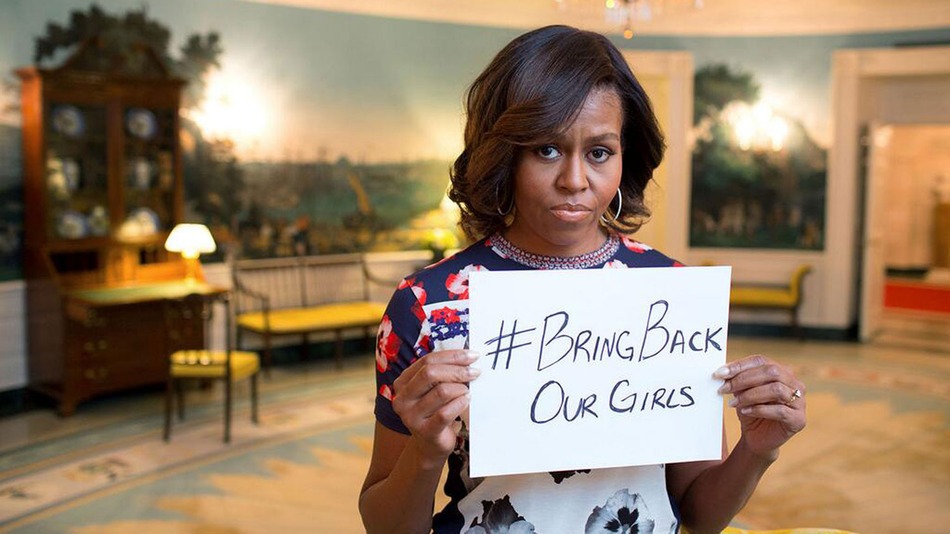It has been one month since extremist group Boko Haram kidnapped 276 Nigerian schoolgirls. In an effort to raise awareness about this devastating incident the hashtag #BringBackOurGirls has gone viral, creating an online activism storm.
More than one million people, including the United States’ first lady Michelle Obama, have used social media to fuel the #BringBackOurGirls campaign.
But some are saying it’s just another first-world nation bandwagon.
It’s called Slacktivism, defined as the action of clicking ‘like’ for cause on Facebook, Twitter or Instagram. It is the process of putting your e-name to something without really thinking about how your digital support could inspire change.
Today the Facebook ‘like’, Instagram ‘selfie’ and Twitter ‘retweet’ are the digital equivalent of a bumper sticker.
Hashtag activism has become a catchy way of raising awareness of an issue that would otherwise go unnoticed. But it’s taken off with mixed success.
James Paterson, Director of Development and Communication at the Institute of Public Affairs Australia, thinks these campaigns are mostly ineffective.
“No tweet, no matter how many times it’s favourite or re-tweeted is going to have any really tangible impact on what happens on the ground,” he said.
Paterson explains that while it’s a way to put pressure on governments by demonstrating the issue is something people are passion about, the reality is there’s a limit to what people can do.
“I think there is an increasing trend for people to want to demonstrate in a visible way that they are moral people that they have good values,” said Paterson.
Paterson claims that it can be about a vanity, but that’s not to discount the people who genuinely care about an issue.
“In fact probably all people genuinely care about it. But there’s an added element of being able to demonstrate that you are a good moral person, making a public stand about,” he said.
In 2012, the #Kony2012 brought to light a Ugandan despot and the plight of child soldiers in Uganda. The aims, and effectiveness of the campaign were scrutinised. While some say it educated people about Uganda, it lost its social media strong hold quickly and Joseph Kony is still at large.
It seems while hashtags can gain enormous traction in the beginning, the underlying problem can disappear just as quickly. So are the actions of talking, tweeting and instagramming about an issue enough?
John Pistoll is an anthropologist and research fellow in Media and Communication at RMIT University. From 2010-11 he observed the use of hashtag activism during the indignados wave of Spanish protests, which led directly to the occupy movement.
“There are two aspects of these campaigns. On one hand they can be effective in drawing attention to an issue and they can have some very positive consequences on the ground depending on the timing and on whether or not they help the local forces,” he said.
“But on the other hand they can also be misguided – people can be accused of hypocrisy.”
He said the only way to find out if hashtag activism works is to conduct more research into what happens once a campaign connects with other factors internationally. In the case of #BringBackOurGirls “we would need to ask has this campaign locally – in Nigeria – been a force for good or not”.
However Pistoll concludes, “I think critics are right when they say sometimes these campaigns are not really addressing the complexity of the issue, but that could be said of all sorts of campaigns not just of hashtag campaigns.”
While hashtag activism is criticised as a product of western culture, it seems the Nigerian people are making the hashtag their own, using it to pressure their government. On May 13, Nigerian’s protested in the streets under the banner #BringBackOurGirls.
Only time will tell if this hashtag campaign will contribute to the successful return of the 276 Nigerian schoolgirls.
By Jordyn Butler
@jordynbutlr

